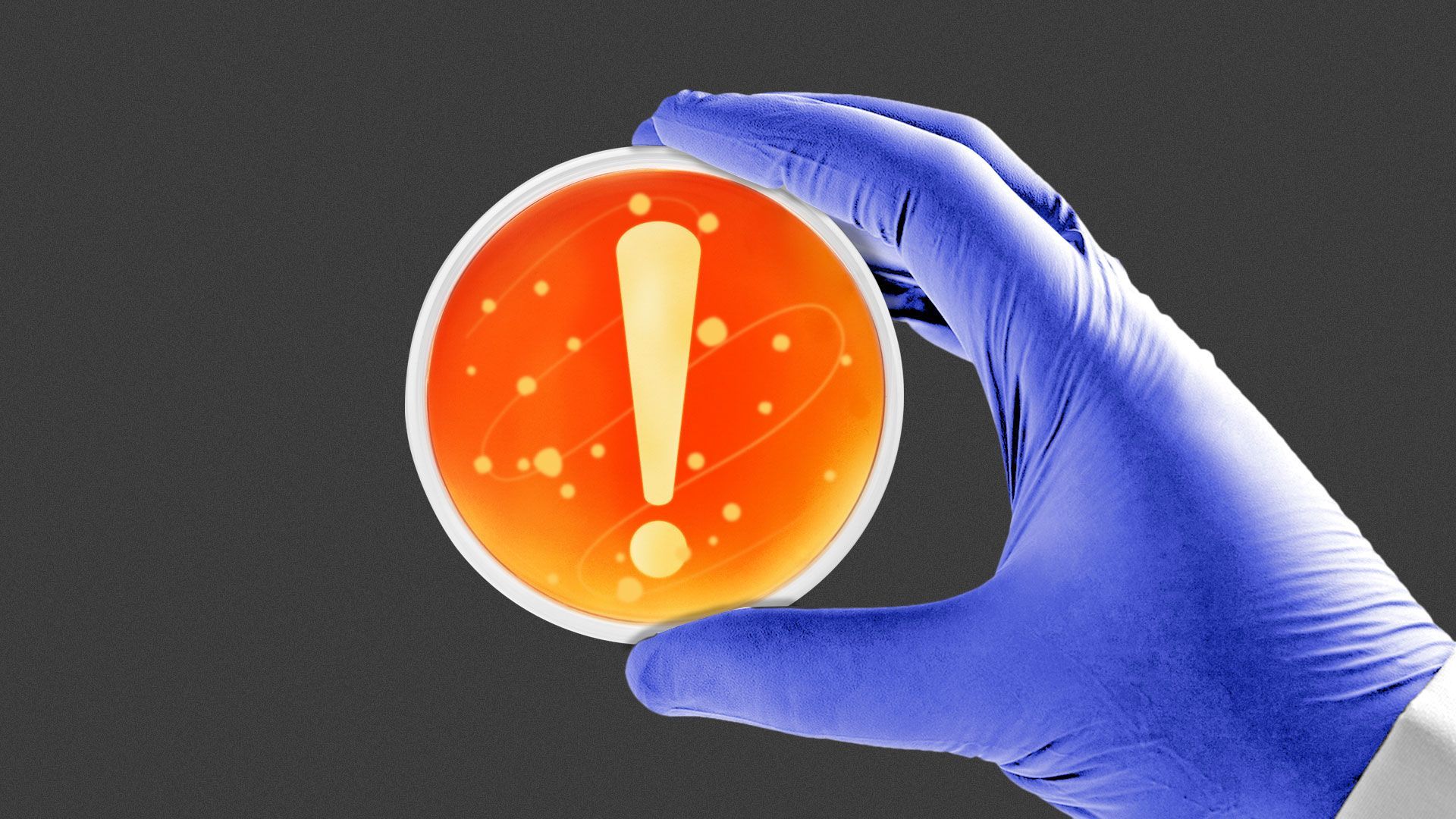
Illustration: Eniola Odetunde/Axios
The type of gut bacteria in colorectal cancer tumors varies significantly between younger and older patients, offering a clue toward understanding why cases are rising in people under 45, according to a study due to be presented at next week's American Society of Clinical Oncology annual meeting.
Why it matters: While the incidence of colorectal cancer in the U.S. has declined overall, it's risen dramatically among patients under 45, since the mid-1990s.
- In many cases, the cancer is more aggressive in those younger patients than it is in older patients, puzzling doctors.
- "A lot of people blame obesity and diabetes," he said. "But we have these patients who run marathons and they eat [healthy diets] and they've got very advanced colorectal cancer," Benjamin Weinberg, a gastrointestinal medical oncologist at Georgetown University Medical Center and the lead author of the study told Axios.
This study points to possible bacterial factors at play, he said.
- "There was some sort of exposure we think in the 1970s or 1980s — maybe everybody started taking antibiotics for ear infections or they stopped breastfeeding — something happened where this cohort is seeing this rise and we don't know why."
Details: Other studies, including one published this week in Nature Medicine, have examined the presence of bacteria in metastatic colon cancer.
- But, Weinberg said, this research team specifically wanted to look at the differences between age groups. "The goal ultimately is to try to explain why younger people are getting these tumors in the first place and try to figure out biologically, 'Is there some difference?'" Weinberg said.
- They sequenced microbial DNA samples from the tumors of colorectal cancer patients who were either under 45 or over 65 when diagnosed.
- They planned to look at differences between the two age groups in the presence of a specific bacteria known as Fusobacterium nucleatum within the samples. But they found it about 30% of the time in both age groups.
- Instead, they saw a difference with the bacteria Cladosporium sp., which appeared more often in the tumors of early-onset colorectal cancer patients. A series of other bacteria were more common in the tumors of older patients and not found at all in younger patients.
Between the lines: It's a small study, covering 63 patients, Weinberg said, but it was robust with its inclusion of survival data, tumor genetic information and diet questionnaire results from participants.
- It indicates there is more to the connection between bacterial flora and colorectal cancer progression. The researchers also plan to study how the circulating microbes that could be picked up in a blood sample, correlates with bacteria in the gut and in tumors.
- "It's this interplay between your environment, what you eat, your diet, your immune system and whatever genetic predisposition you have to inflammation," he said. "It's a way of measuring all three simultaneously and asking: Is that what's producing this unfavorable environment that these cancers can grow in?"
Health - Latest - Google News
May 26, 2023 at 05:02PM
https://ift.tt/6ReSMqu
New bacterial clues about why young people are getting colorectal cancer - Axios
Health - Latest - Google News
https://ift.tt/GJTKyLi
Bagikan Berita Ini














0 Response to "New bacterial clues about why young people are getting colorectal cancer - Axios"
Post a Comment